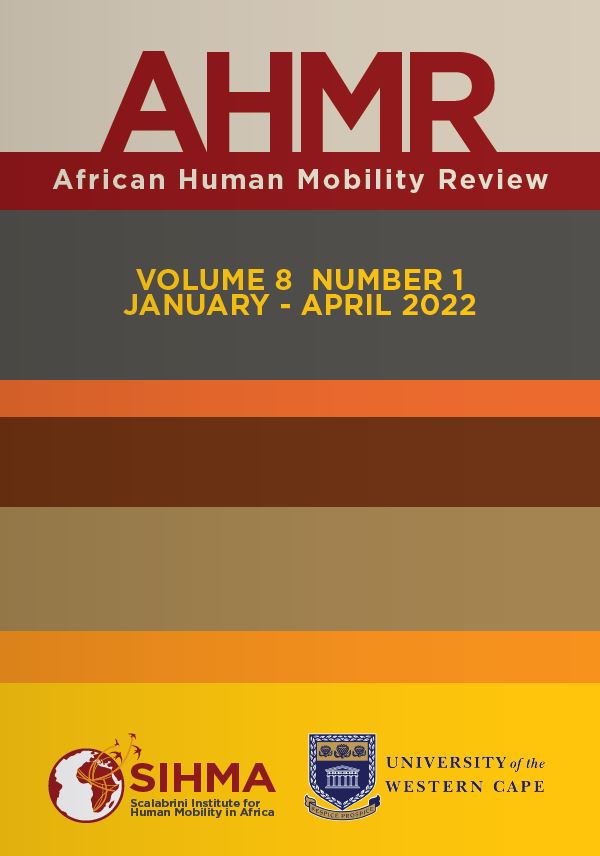Main Article Content
Citizenship, Belonging and Crisis-Induced Returns of Ghanaian Migrants from Côte d’Ivoire
Abstract
The socio-economic embeddedness of Economic Community of West African States (ECOWAS) foreign nationals and migrants in Côte d’Ivoire has been amply described. Despite previous episodes of political violence and the somewhat recent anti-immigrant policies, Côte d’Ivoire has served and will continue to serve as a haven for foreign-born populations of ECOWAS nationals and Ivorian-born descendants of foreigners. This paper draws on the notion of citizenship and belonging, and qualitative data gathered through interviews to explore the experiences of returned Ghanaian migrants who were victimized and trapped in a conflict situation in Côte d’Ivoire in 2002–2003 and 2010–2011. All interviews were transcribed fully, and the reflexive thematic coding and analysis technique was employed to analyze the qualitative data. The findings show that despite playing a passive role as perpetrators of the violence, Ghanaian migrants experienced harassment, intimidation and physical attacks, which in turn contributed to traumatic feelings beyond the crisis period. While the notion of citizenship and belonging facilitated migrants’ easy entry to Ghana upon return, they had to navigate multiple challenges, including hostile attitudes of militants, rebels and vigilante groups at border checkpoints, extortion of cash and other material possessions. Re-integration and resettlement were further exacerbated due to their experiences. These findings have important implications for emergency responses to situations of migrants being caught up in crisis.





